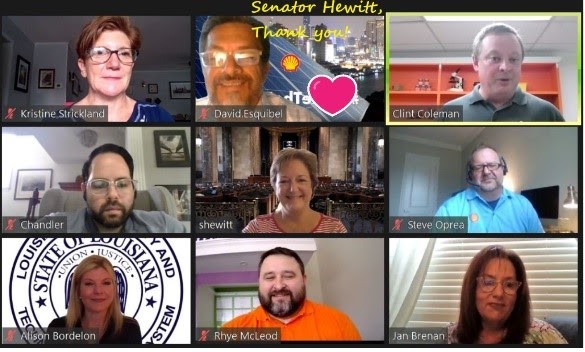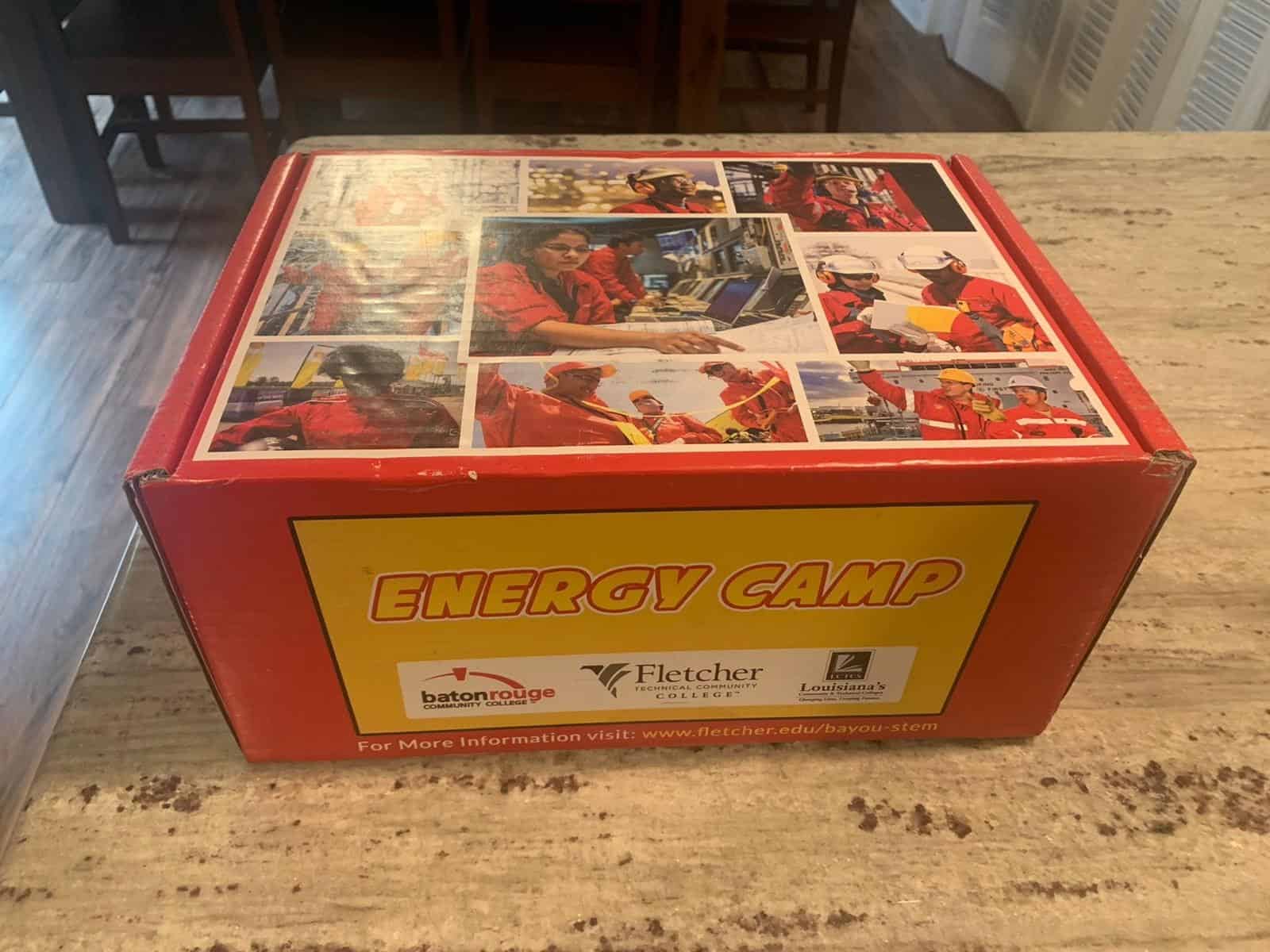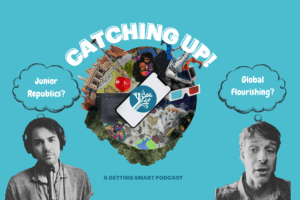3 Unexpected Benefits of Virtual Learning and Its Impact on Engaging Students

By: Crystal Lovelady-Jackson, Workforce Development Manager, Shell Oil Company
As many teachers can attest, engaging students and ensuring that the material shared actually resonates can be a challenge even at the best of times. Now in 2020, teachers are faced with the relentless task of imparting knowledge via virtual channels, without the advantage of being in the same room to hold students’ attention. This has led to a general belief that virtual learning cannot begin to replicate the emotional responses that students typically receive from live interactions with peers and teachers; virtual learning can be categorized as a distant and uninviting experience.
Beyond both student’s and teachers’ negative experiences, a common complaint is that virtual learning exacerbates the education gap – the socioeconomic and technological divide between students as it pertains to the accessibility of education. However, many do not realize that when done well, virtual learning can bring unexpected benefits and re-shape the future of education. In fact, two annual STEM-focused summer camps: Energy Venture Camp and ASTRO Camp, had been reimagined this past summer to support a virtual model.
A Kit-Based Model Bridges the Digital Divide
Although the importance of STEM learning has been widely acknowledged, for many there are still quite a few barriers starting with limited access to the necessary education exasperated by the ongoing pandemic. After all, for more traditionally hands-on subjects like science, it is hard to engage students and impart the necessary knowledge through a lecture alone. Therefore, a kit-based teaching model can be highly effective for these types of subjects since students will be able to replicate relevant science experiments at-home. By creating a package of the necessary experiment materials for each student, teachers can bring an element of interactivity to the lesson and fully engage students.
Seeing this systemic issue in STEM education, Shell Oil Company launched the Energy Venture Camp in 2015 and has been supporting in-person Energy Camps for as long as 15 years to foster interest in the STEM subjects within middle and high school students, especially in underserved communities. One successful educational partner in this space has been Fletcher Technical Community College in Schriever, Louisiana, who developed the innovative “Bayou STEM” K-12 STEM outreach program. This past summer, the Bayou STEM team was challenged, due to COVID-19 restrictions, to deliver a fulfilling and equitable summer camp experience. Employing a team-based approach with their collaborators and sponsors, the Bayou STEM team developed a kit-based approach for the virtual camp format. Notably, almost 50% of this year’s camp participants identified as underserved, under-represented and at-risk. The notion of a digital divide presumes these campers would have less access to educational tools and struggle in a virtual format.
Yet, socioeconomic status did not impact the campers’ experience since all campers received packages of absolutely everything needed to perform each activity – from measuring cups to safety equipment. Through virtual lessons and experiments, campers remained engaged throughout the week-long camps. Notably, ASTRO Camp TO GO had the highest number of registered summer camp users online at once, of any ZOOM camp during the summer of 2020 with a single day peak of 365 unique logins. Camper satisfaction was over 90%, proving that distance learning experiences can be deeply satisfying experiences when they are well-crafted and instructed.

Opportunities for Increased Diversity and Inclusion
Virtual learning can be a highly equitable avenue, especially for those with special needs or those in underserved communities. For special needs learners, in a traditional learning environment, it would be difficult or even impossible for them to participate in certain educational and recreational endeavors. However, through virtual learning, those learners can partake in those learning experiences from home with the support and comfort that relatives and caregivers often provide.
This past summer, over 20% of ASTRO Camp TO GO participants in grades K-12 self-identified as having a learning accommodation. By the end of the camp, these 72 special needs campers not only attended – but finished the full week – leading to a 100% completion rate. More so, over 75% of campers reported making new friends throughout the week, proving that virtual learning models can still foster a sense of community.
On the other hand, for those campers joining from underserved communities it was vital that printed instructional materials be included to ensure that a lower technology threshold did not hinder the experience. In the pre-camp survey, no respondents identified that they would not be using technology during the experience. Yet, in the post-camp survey over 20% of respondents admitted to a lack of technology.
By understanding the needs of all attendees, the program positively impacted the lives of over 1,000 individuals during this one-week experience.
Virtual Guest Speakers Expands the Scope of Lessons
Through virtual learning, teachers from different schools can now work together to secure prominent guest speakers and have all of their students attend the lesson at once – broadening the scope of lessons. While this would not have been possible in the past due to physical restraints, schools and subsequently teachers, are no longer limited by physical logistics like space or transportation, opening the doors to a myriad of new teaching methods and the possibility for unprecedented levels of collaboration.
In fact, this method proved highly successful during Energy Venture Camp and ASTRO Camp, where Shell and other sponsors were able to teach students about future career opportunities in STEM and share real-world examples. Stemming from these guest appearances, 99% of participants “consider [themselves] better at STEM.” Additionally, 88% of those who attended ASTRO Camp are now “considering a career in STEM,” up from the pre-camp statistic of 57%.
At a time when many schools are considering re-closing due to a rising second wave, a more open-minded approach should be considered for virtual learning. Like any other teaching method, virtual learning has benefits in addition to downsides. Quite possibly though, schools and teachers may need to continue leveraging this method for the remainder of this school year and beyond. Therefore, for virtual learning to truly be effective and a viable strategy, it will take cooperative and creative thinking from both the administration and teachers. After all, although unexpected, the virtual models of Energy Venture Camp and ASTRO Camp prove that these strategies can have a positive impact when put in action.
For more, see:
- Randy Ziegenfuss on Learner-Centered Leadership
- How Speech and Language Deficits Can Affect a Child’s Academic Success
Crystal Lovelady-Jackson is a Workforce Development Manager at the Shell Oil Company.
Stay in-the-know with innovations in learning by signing up for the weekly Smart Update.






0 Comments
Leave a Comment
Your email address will not be published. All fields are required.